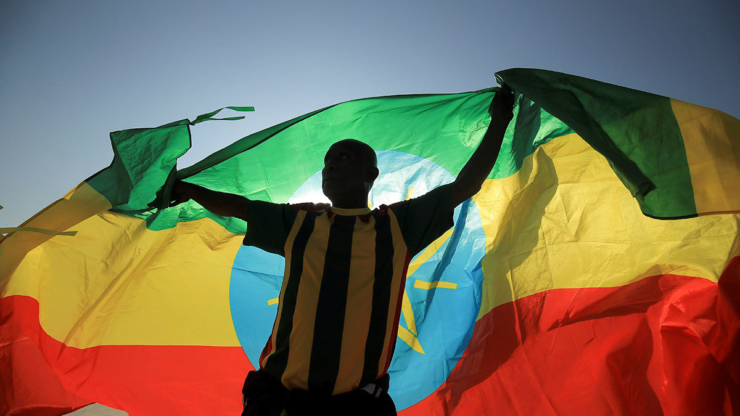
Against the background of the emergence of information about the adoption by the House of Representatives of Ethiopia of an amendment regulating the process of removing political parties from the list of terrorist organizations, there are wide opportunities for analysis and forming the most substantiated interpretations of such a development, which can be considered not only as formalising the existing balance of power, but also as a political gesture aimed at reconciling the federal centre with the armed opposition.
At the end of May 2024, the Council of Ministers of Ethiopia took the initiative to amend regulations governing the functioning of the party system. The Proclamation on Elections, Political Parties Registration and Electoral Ethics, adopted in 2019, does not contain provisions determining the procedure for removing organisations from the list of terrorist groups and their further inclusion in the list of political parties. The current domestic political dynamics create an obvious demand for supplementing the regulatory framework. In the context of a year and a half of non-conflict coexistence between the federal centre and the Tigray People’s Liberation Front (TPLF), representatives of the latter are trying to overcome the current uncertainty regarding their status in the political system of Ethiopia. Also, in Ethiopia, where, in addition to the ruling party and the legal opposition, there are a number of rebel organisations more or less at odds with the government, the establishment of an additional regulatory framework could further facilitate the emergence of institutionalised channels for reaching compromises with influential ‘terrorist groups’, such as the Oromo Liberation Army (OLA).
TPLF: ‘Live’ opposition?
When in November 2022, the military defeat in the two-year confrontation with the government of Abiy Ahmed became obvious, TPLF leaders were forced to sign a peace agreement in Pretoria, which essentially meant the surrender of the Tigray Defence Forces (TDF), the return of Tigray to the political space of Ethiopia, the recognition of the legitimacy of the current government and the readiness to entrust their political fate and personal freedom to the winners. At the same time, despite seeming fatal for the TPLF, the agreement contained at least 4 aspects making possible the ‘political survival’ of the Tigray elite. Firstly, neither the Amharic paramilitary groups nor the government of Eritrea – the TPLF’s historical antagonists – were allowed to participate in the negotiations. Secondly, in addition to the disarmament of the TDF, it was envisaged that all armed groups would be integrated into the Ethiopian National Defence Forces (NDFF) or disarmed. Thirdly, the solution of the problem of the territorial affiliation of Western Tigray and southern regions of the state was at the mercy of the federal government. Finally, the political amnesty and the appointment of one of the leaders of the TPLF during the conflict, Getachew Reda, as head of the interim state government clearly indicated that the Prosperity Party under the leadership of Abiy Ahmed is ready to engage in dialogue with its recent opponents, both for foreign policy and domestic political reasons.
However, until recently, the federal authorities did not take any steps to politically legalise the TPLF, which has been on the list of terrorist organisations since 2021, and, therefore, does not have formal instruments to struggle for power even at the regional level. On the one hand, such a significant ‘pause’ between the conclusion of a peace agreement and the decision to re-legalise the TPLF should be considered as a sure signal of the successful passage of the probationary period’; the Tigray leaders fulfilled their part of the agreements and did not openly go against the government’s policy, which is in line with the interests of the TPLF (the conflict between the government and Fano, the cooling of relations between Ethiopia and Eritrea). On the other hand, it should be kept in mind that, unlike any puppet opposition, the TPLF is a political party, the entire history of which is closely connected to an active struggle for power, and also includes twenty years of experience in governing the country. Thus, political ambitions are an integral feature of the party’s internal ‘culture’, which means that by giving the TPLF the opportunity to participate in elections, the ruling party actually increases the number of its competitors.
In general, speaking of the motives that prompted the Prosperity Party to ensure the return of the TPLF to the legal field of Ethiopian politics, three explanations seem logical:
1) The TPLF is not perceived as a political rival at the federal level, both due to its narrow ethnic base and due to the decline in the party’s authority in the eyes of a significant part of the Ethiopian population after the events of 2020-2022;
2) In the context of the presence of a common enemy – the Amharic nationalist group Fano – as well as the deterioration of relations between Addis Ababa and Asmara, the ‘Tigray clan’ is considered a natural ally and the restoration of its legal status will have a positive impact on the overall state of the country’s political system;
3) The legalisation of the TPLF is used as a non-verbal signal to other insurgent groups, including the OLA; the government is ready to fulfil its obligations and facilitate the reintegration of recent military opponents into Ethiopian political life.
Ivan KOPYTSEV – political scientist, junior researcher at the Centre for Middle Eastern and African Studies, Institute for International Studies, MGIMO, Russian Ministry of Foreign Affairs, especially for online magazine “New Eastern Outlook”